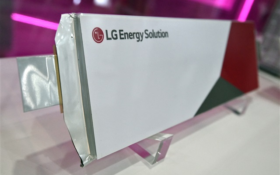Global funding for battery storage, smart grid, and efficiency companies fell year-on-year in 2019, according to market researchers.
Funding by venture capital, private equity, and corporate venture capital fell 18% last year to reach $2.3 billion compared to $2.8 billion raised in 2018, reported industry analysts Mercom Capital on 20 January.
Total corporate funding (including venture capital funding, public market, and debt financing) was also down for the above sectors as 2019 recorded a 22% fall with $3.8 billion raised compared to $4.9 billion the year before.
However, funding into battery storage companies increased by 103% to $1.7 billion in 32 deals in 2019 compared to $850 million raised in 49 deals the previous year.
In contrast smart grid firms raised $300 million and energy efficiency companies secured $298 million.
The biggest winner was Northvolt, which attracted $1 billion deal in Q2 2019 for its planned Swedish gigafactory project. Funding came from, among others, European vehicle OEMS Volkswagen and BMW.
The other top funded firms were: Sila Nanotechnologies ($170 million and $45 million in two separate deals), Energy Vault ($110 million), and Romeo Power ( $89 million).
According to Mercom, lithium-ion based battery technology companies received the most funding last year with $1.4 billion.
Alternative technologies that received funding included: gravity storage, flow batteries, CAES, fuel cells, and liquid metal, solid-state, sodium-based, and zinc-air batteries.
Seventy-eight VC investors participated in battery storage deals last year compared to 73 in 2018, with BASF Venture Capital, Breakthrough Energy Ventures, and Macquarie Capital the top investors.
Mergers and acquisition deals in the battery storage category were also down in 2019 with 10 agreements compared with 16 the previous year.
The most prominent M&A transaction in the battery storage space was the acquisition of Sonnen by fossil furl firm Shell last year, stated Mercom.












